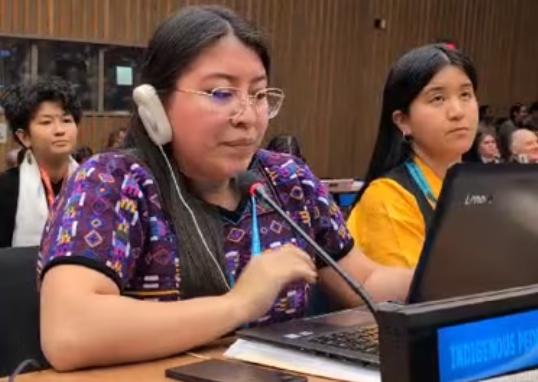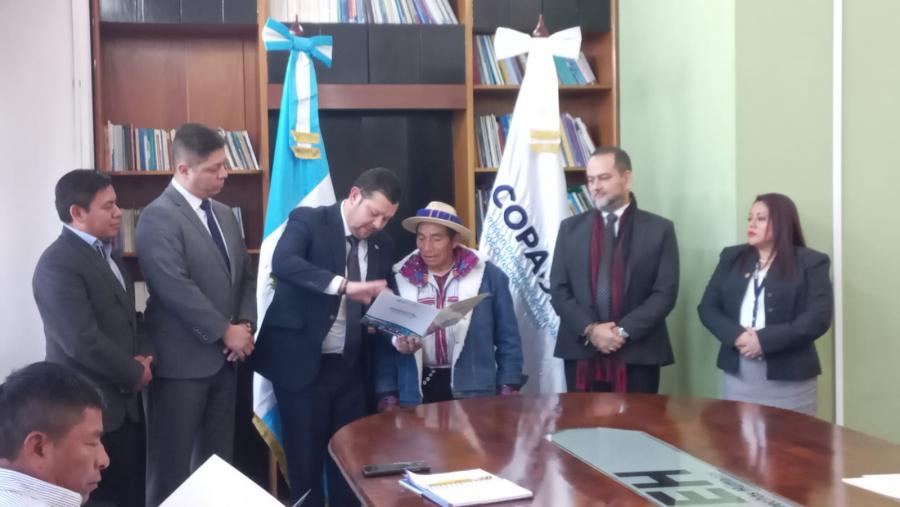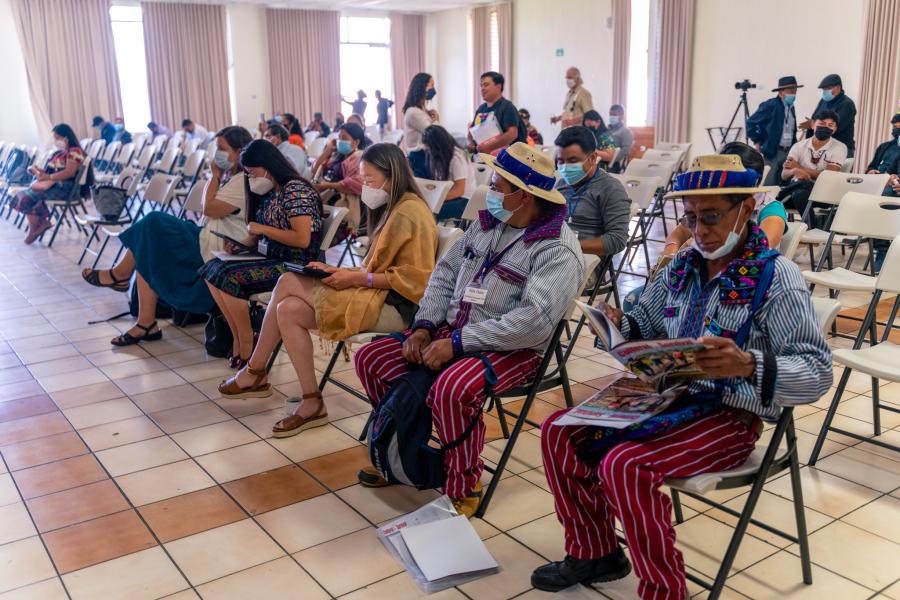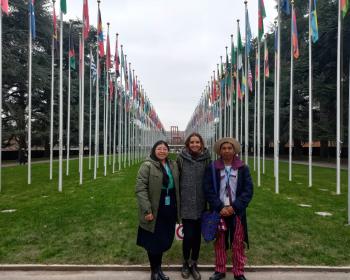
Intervention in the 23rd Session of the United Nations Permanent Forum on Indigenous Issues Delivered by the Maya Lawyers Association and Cultural Survival
Theme 3 (continuation): Discussion on the topic “Enhancing the right of Indigenous Peoples to self-determination in the context of the United Nations Declaration on the Rights of Indigenous Peoples: highlighting the voices of Indigenous youth”
Presented by: Adriana Sunun (Kaqchikel Maya)
Madam President, honorable members of the panel, Indigenous sisters and brothers from around the world. On behalf of the Indigenous Community Radios of Guatemala, we request:
To the honorable members who form the Permanent Forum on Indigenous Issues, recommend to the State of Guatemala to guarantee Indigenous Peoples the full exercise of the right to freedom of expression and the right to establish their own media channels in order to advance self-determination; particularly, recommend to the State of Guatemala the approval of the law on Indigenous community radios in accordance with international standards on freedom of expression.
That the Permanent Forum invite the United Nations Special Rapporteur on Freedom of Opinion and Expression to pay special attention to the aggressions faced by Indigenous communicators and to issue recommendations to States whose internal norms are discriminatory and prevent Indigenous Peoples from accessing the media, as in the case of Guatemala.
Freedom of expression has been recognized by the Special Rapporteur on Freedom of Opinion and Expression as the cornerstone of democratic systems, which is not possible if the media do not provide space for a plurality of voices.
Indigenous Peoples in Guatemala have been fighting for over three decades, since the signing of the Peace Accords, for Indigenous community radios to operate freely and without fear of communicators being imprisoned. Previously, there was widespread active participation of women and youth; however, in recent years, this has declined.
After exhausting legal means in the country, Indigenous Peoples turned to the Inter-American Human Rights System, where, finally, in 2021, the Inter-American Court of Human Rights issued a condemning judgment against the State of Guatemala for violating the rights to freedom of thought and expression, to participate in cultural life, and the right to equality before the law.
For this reason, in 2023 Guatemala underwent the Universal Periodic Review, and recommendations were revisited to comply with the Court's judgment, especially regarding granting frequencies to Indigenous community radios, which still remains unfulfilled.
Indigenous community radios are the means through which Indigenous Peoples transmit our knowledge, reinforce our identity, and maintain the use of our languages; and above all, they represent the space to propose and debate ideas to achieve the economic, social, and cultural development we desire.
In this context, both women and youth have had active participation in the exchange of ideas and in the media production and management. Today, Indigenous youth in Guatemala are aware, interested, and participate in the recovery of their identities through community media.
In particular, youth have seen this space as an opportunity to express their political views, for intergenerational exchange of knowledge and ancestral wisdom, and as a space to conduct social audits on local and national governments. Finally, we urge the State of Guatemala and other States to amend their internal regulations to allow Indigenous Peoples to access media easily, freely, and at no cost.



